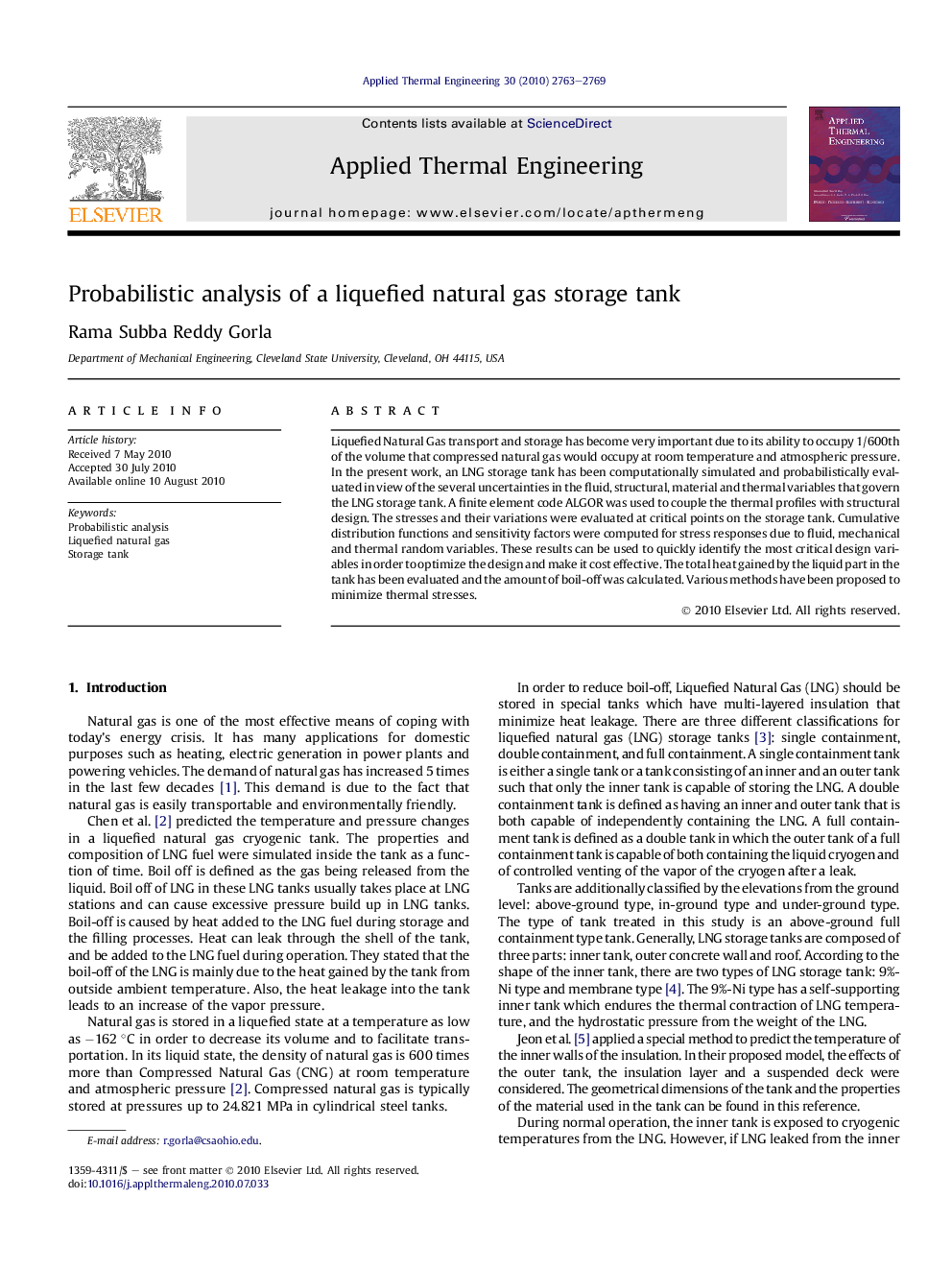| Article ID | Journal | Published Year | Pages | File Type |
|---|---|---|---|---|
| 648080 | Applied Thermal Engineering | 2010 | 7 Pages |
Liquefied Natural Gas transport and storage has become very important due to its ability to occupy 1/600th of the volume that compressed natural gas would occupy at room temperature and atmospheric pressure. In the present work, an LNG storage tank has been computationally simulated and probabilistically evaluated in view of the several uncertainties in the fluid, structural, material and thermal variables that govern the LNG storage tank. A finite element code ALGOR was used to couple the thermal profiles with structural design. The stresses and their variations were evaluated at critical points on the storage tank. Cumulative distribution functions and sensitivity factors were computed for stress responses due to fluid, mechanical and thermal random variables. These results can be used to quickly identify the most critical design variables in order to optimize the design and make it cost effective. The total heat gained by the liquid part in the tank has been evaluated and the amount of boil-off was calculated. Various methods have been proposed to minimize thermal stresses.
Research highlights► A Liquefied Natural Gas storage tank was analyzed by finite element analysis. ► A probabilistic analysis was used to compute cumulative distribution functions and sensitivity factors due to 54 random variables representing thermal, material and structural properties. ► Uncertainties in the stresses in the tank were quantified. ► The sensitivity factors will aid the designer to select materials that can minimize thermal and mechanical stresses.
